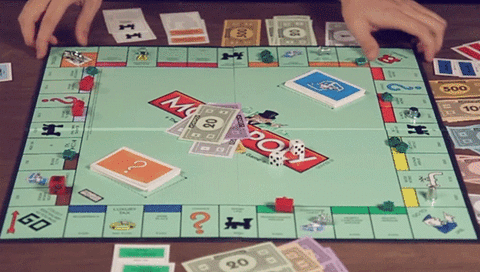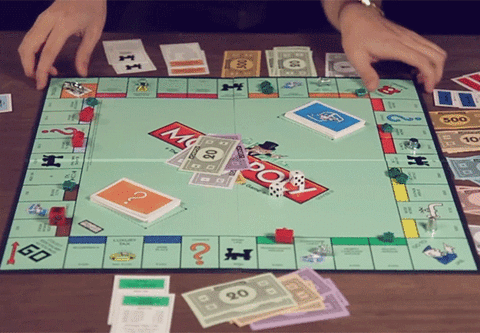Friends, I am not a patient guy.
I don’t like ambiguity and I am not a big fan of being in situations out of my control.
I generally prefer being in the driver’s seat in most situations in my life. Orchestrating and delivering predictable, favorable, more certain outcomes is something I constantly strive to do.
But as I have gotten older, I have realized that life doesn’t always make this possible.
You can’t always dictate your terms. You can’t always engineer the result you desire. You can’t structure situations to turn out the way you think they should be.
💩 happens. Life is unpredictable.
It used to frustrate me to no end. It would cause anxiety. It would even make me mad.
A few years ago, I wrote here in this space about the idea of having faith — not necessarily in the religious sense, but more about how to maintain confidence in the face of uncertainty.
I was reminded this week of a related thought — it’s about trusting the process.
When you are Type A and built to remove ambiguity, sometimes our first inclination is to try to force a sense of order or structure to a situation. The idea of trusting the process requires us to reserve judgement and be patient when dealing with someone, something, a situation or a series of events that are not in our control.
Trusting the process means we willfully accept that we cannot control our current circumstances — and in the process of doing so, we can establish some control of the one thing we can: ourselves.
It may mean that we have to be comfortable being uncomfortable and let someone else be in the driver’s seat for a bit — and it will still turn out okay.
It’s like that scene from the movie Braveheart, where William Wallace has his men “Hold” as the enemy charges them.
Wallace, their leader, had set their plan going into the battle, but in the moment, they were not in control of the pace in which their enemy would charge. They were seemingly not in control of the one thing that mattered most — their safety.
You could see the expressions of fear, anxiety and even doubt on their faces as they stood, patiently, as the horses and men with long swords ran toward them. Imagine the thoughts racing through each of their minds as the situation unfolded.
In that moment, they had to keep their composure and trust the process (and William Wallace).
Friends, sometimes we just need to be reminded that this is the best thing we can do.
Forcing a situation and trying to gain control simply to reduce our anxiety will not likely yield the outcomes we desire. It can actually be counter productive and make things worse.
Now this doesn’t mean we become lazy or unengaged or disconnected from our circumstances. We don’t have to become “sheep” or be lead blindly. We still need to be aware and think about what is happening. We may need to gain a better understanding of what the “process” we are trusting may be. Maybe we ask questions so we can be better informed so that we can control our anxiety.
We’ve all been there — sometimes we may discover that there actually is no “process” and that the thing or idea or person we are following really has no merit.
But usually, this is not the case. Usually, we just need to reserve judgement, trust what we know and succumb to the circumstances. “Hold” and let it play itself out until we can get ourselves back in a position where we can have greater influence of the circumstance. Things have a way of working themselves out.
Last thing: remember that if you are someone who operates best when you are in control, trusting the process not only takes self-discipline, it can require a tremendous amount of humility and courage. Don’t forget to pat yourself on the back when you allow yourself to trust a process that is not yours, no matter how big or small that may be.
And be sure you acknowledge when you see someone else doing the same. The sentiment goes a long way.
Trust me.
XOXO
Dave
And now a few things to make you smarter…
With the Paris Summer Olympics in full swing, organizers are spending $4.7 billion to host the games to two million fans visiting from abroad.
This year, 10,500 athletes are competing across 329 events to billions of viewers worldwide. Kayaking and breaking (commonly known as breakdancing) will debut, while surfing and skateboarding return for their second Olympics.
This graphic shows the countries with the most medals in Summer Olympic sports, based on data from the International Olympic Committee.
The global board games market size was valued at USD 13.06 billion in 2023 and is projected to grow from USD 14.37 billion in 2024 to USD 32.00 billion by 2032, exhibiting a CAGR of 10.52% during the forecast period. You’ll be surprised by what is going to be driving it.
The annual rite of passage has always been more about the ambivalence of adults than the amusement of children.
Nowadays, music you can actually hold in your hands feels novel compared to its digital brethren. Although cassettes are making a slow comeback, most people probably don’t think of tapes as a must-have item, let alone anything of value—but those folks would be wrong.
You don’t have to have rare demos or impossible-to-find collectibles to make money off your cassette tapes. While first pressings or tapes that are still sealed typically command the highest resale value, you can still make a pretty decent buck even if they are opened. So stop what you are doing and immediately go up to your attic or down to your basement and look for these gems.




